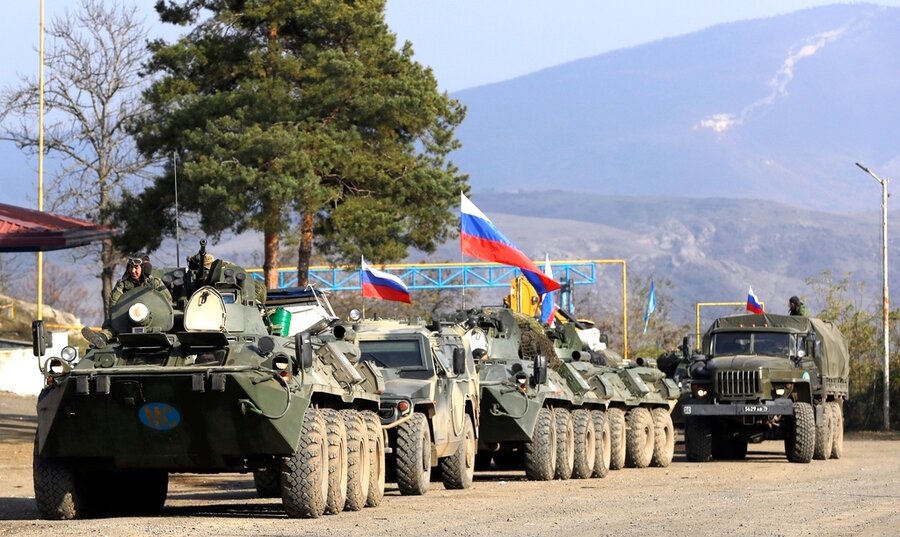Opportunity knocks in Central Asia
A historical term in geopolitics – the Great Game, or when big powers fought to control the heartland of the Eurasian supercontinent – may need to be retired. Over the past two years, many countries in Central Asia and the Caspian basin have seen a flurry of investments and friendly diplomacy from around the world, reflecting the region’s emboldened streak of independence from foreign intervention.
The latest example is an April 22 summit between Russia and Azerbaijan. The focus was mainly economic – how to finish building a road-and-rail corridor across Eurasia, one of several transportation projects in the region. That was in sharp contrast to news just days earlier when Russia, weakened by its war in Ukraine, started the withdrawal of some 2,000 peacekeeping soldiers from the Karabakh region of Azerbaijan, a remnant of Moscow’s previous clout.
“For the first time in 200 years, there will be no foreign soldiers or bases on Azerbaijani soil,” declared the Azeri news site Yeni Müsavat.
Russia’s invasion of Ukraine in 2022, along with the American withdrawal from Afghanistan in 2021 and Iran’s domestic troubles, has helped much of Central Asia to focus on trade and investment.
“The region, previously the theater of the Great Game in the confrontation of superpowers, is now trying to become an opportunity zone,” states a new report by the TALAP Center for Applied Research, a think tank in Kazakhstan.
“These states have skillfully maneuvered the changing political landscape, adhering to a balanced foreign policy,” the report adds.
China recently eclipsed Russia as the region’s largest trade partner, while trade with Europe and the United States is rising. Last year, President Joe Biden held a summit with the leaders of Kazakhstan, Kyrgyzstan, Tajikistan, Turkmenistan, and Uzbekistan.
Yet with their eye on luring foreign investors, these authoritarian-minded states are also being reminded to move toward democratic rights and freedoms. They must strengthen the rule of law, enforce fair and transparent competition, and ensure independence of the judicial system, the TALAP Center report recommends.
Perhaps the most notable reforms have been in Kazakhstan, the region’s largest country. Mass protests starting in 2018 led to the ouster of a longtime ruler and brought in a new president, Kassym-Jomart Tokayev. He has distanced the country from Russia, raised the status of a human rights ombudsperson, and beefed up protections for women and children from domestic violence.
The spirit of the shift in the region was reflected in a commentary in Azerbaijan by the Minval news website on the day of the April 22 summit in Moscow: “Our country will not play the role of someone else’s bridgehead or outpost – no matter for whom or against whom.”
Great Game over.






